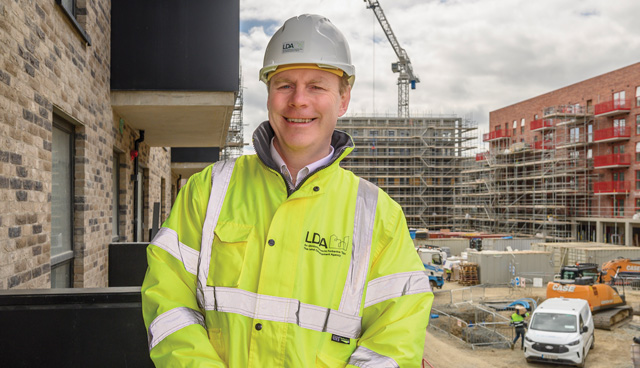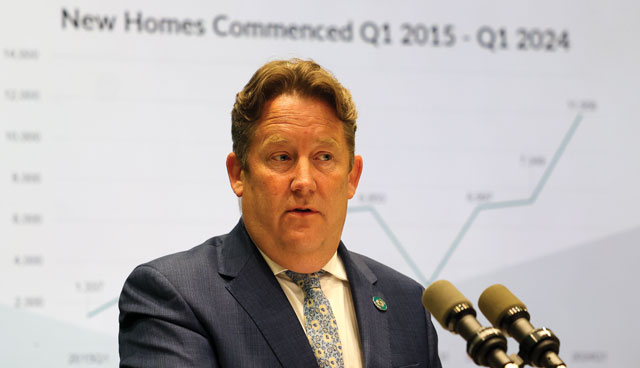
Housing crisis: Social home output
4th July 2024
Homeownership schemes polarise discourse
4th July 2024Recast Energy Performance of Buildings Directive: What does this mean for the residential sector?

Phillip Lee LLP’s Angelyn Rowan examines the impact of the Recast Energy Performance of Buildings Directive on the residential sector in Ireland.
The EU has established a legislative framework to boost the energy performance of buildings with one of the key aims being to achieve a highly energy efficient and decarbonised building stock by 2050.
According to the European Commission, 85 per cent of EU buildings were built prior to 2000 and 75 per cent of this building stock has poor energy performance. The recast Energy Performance of Buildings Directive came into force on 28 May 2024. It is intended to help increase the rate of renovation in the EU, particularly for the worst-performing buildings in each country, and it is also designed to support better air quality, the digitalisation of energy systems and the roll-out of infrastructure for sustainable mobility.
Ireland will be required to transpose the Directive into Irish law by 29 May 2026 and there is a significant body of work to be undertaken by the Government in the lead up to that date.
What is required in relation to existing housing stock?
Under the strengthened framework, residential and non-residential buildings are addressed differently. In respect of residential buildings, each member state is to adopt its own national trajectory to reduce their average primary energy use by 16 per cent (compared with 2020) by 2030 and 20-22 per cent (compared with 2020) by 2035. At least 55 per cent of the required decrease in average energy use must be achieved through the renovation of 43 per cent of the worst-performing residential buildings.
It has been recognised that the worst performing buildings can consume up to 10-15 times more energy than a zero-emission building. Member states are free to choose which buildings to target and which measures to take, however, they are not permitted to disproportionately exempt rental properties.
What will this mean for new builds?
The revised Directive makes zero-emission buildings the standard for all new buildings. The Directive defines a zero-emission building as a “a building with a very low energy demand, zero on-site carbon emissions from fossil fuels and zero or a very low amount of operational greenhouse gases”.
Therefore, all new residential buildings must have zero on-site emissions from fossil fuels, as of:
- 1 January 2028 for publicly owned buildings.
- 1 January 2030 for all other new buildings (with some exemptions).
For owners of existing residential housing it will be a case of wait and see what measures the Government will introduce to enable Ireland to meet the targets for the reduction of energy usage, but expect a new “generation of renovation” if one is not to be left behind.
Angelyn Rowan, Phillip Lee
National Building Renovation Plan
Ireland is required to draw up a national building renovation plan to ensure the renovation of the national stock, both residential and non-residential, into a highly energy efficient and decarbonised building stock by 2050. The Commission can then issue recommendations on the draft plan. These plans are to be submitted every five years with the first being due on 31 December 2025.
The first plan is to contain a roadmap as to how the member state intends to achieve the 2050 target of ensuring a highly energy efficient and decarbonised national building and its plans and measures to implement the plan. In terms of residential buildings, the plan must specifically include the steps it intends to undertake to achieve the renovation of the existing residential building stock to reach the required reduction in average energy usage.
Solar energy
New residential buildings are required to be solar ready by 31 December 2029. There is a transition period for the deployment of solar energy installations on existing public buildings and by 31 December 2030 any building with a floor area larger than 250m2 must have done so. All of these obligations are subject to the requirements being technically, economically, and functionally feasible.
Renovation Passport
Member states are required to have a scheme in place for renovation passports by no later than 29 May 2026. Building renovation passports are tailored roadmaps for the deep renovation of individual buildings in a maximum number of steps to significantly improve the buildings energy performance. The scheme is to be voluntary for building owners, unless member states make them mandatory. Member states may allow for a renovation passport to be issued jointly with the energy performance certificate (BER).
The idea behind the renovation passport is to have an overall plan for the deep renovation of a building that can then be carried out in stages. This can make renovations less disruptive and more financially feasible for the occupants.
Sustainability mobility infrastructure
In new buildings with more than three car parking spaces or residential buildings undergoing major renovation with the same number of car parking spaces there will be a requirement for the installation of pre-cabling to enable the installation of recharging points for EVs. There must also be a certain number of bicycle parking spaces for every residential unit.
Barriers and financial incentives
It is recognised that although energy renovations of buildings will generate large savings on energy bills over time, the immediate expense of energy renovations may deter homeowners. One of the main aims of the Directive is to reduce energy poverty, which is often linked to inefficient buildings.
To protect those in residential and social housing, the Directive provides that financial incentives and other policy measures should prioritise vulnerable households. Member states should take measures to prevent “renovictions” (de-facto evictions related to a significant increase in rent that occur as a result of renovations). Examples of such measures include caps on rent increases and member states providing financial incentives to owners of buildings or building units to tackle the upfront costs of renovations.
EPCs and data exchange
Uniformity across EU member states is to be introduced in relation to Energy Performance Certificates, similar to the Building Energy Rating (BER) certificates used in Ireland. This will enable greater comparability across the EU’s residential market. An Energy Performance Certificate will be required to include recommendations for the improvement of the energy performance of the building in question.
Building owners, tenants and managers will be entitled to have access to their building systems’ data, meaning the energy performance of building elements, the energy performance of building services, the projected lifespan of the heating systems etc.
One-stop shop
One-stop shops for the energy performance of buildings must be established by member states for the energy performance of buildings, targeting all entities involved in building renovations. The creation of these one-stop shops is to provide assistance for the provision of technical, administrative and financial advice.
All of the above measures will come at a cost and it is understood that there will be €100 billion in EU financing available to support renovations in the period between 2023 and 2030 alone. The two-year implementation period for the Directive will not be long passing. For owners of existing residential housing it will be a case of wait and see what measures the Government will introduce to enable Ireland to meet the targets for the reduction of energy usage, but expect a new “generation of renovation” if one is not to be left behind.
Angelyn Rowan, Partner, Projects and Construction Contact us
T: 01 237 3700
E: arowan@philiplee.ie
W: www.philiplee.ie







